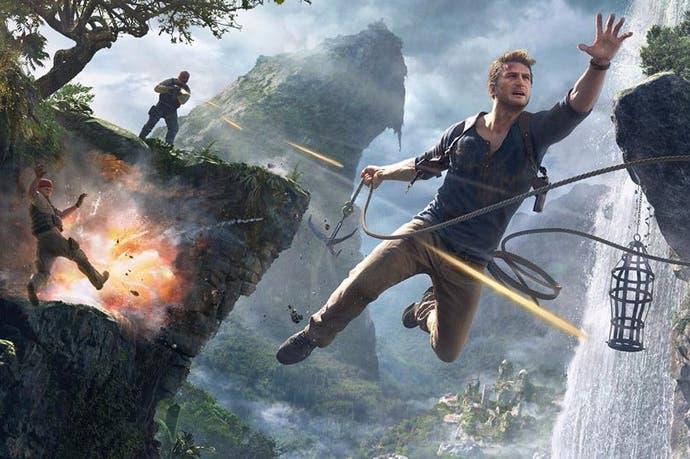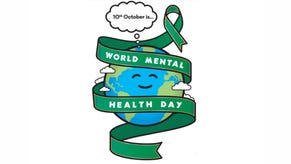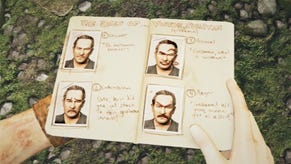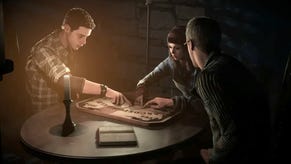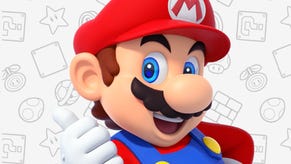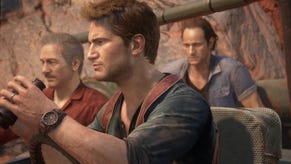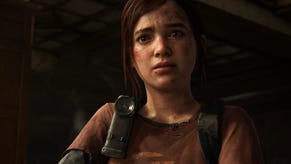Uncharted 4: A Thief's End review
Off the map.
This is a rare treat: the creators of a popular series and a beloved character laying them to rest with elegant finality, and going out on an absolute high. In games as in other media, dignified endings aren't easy to come by. But Naughty Dog have outdone themselves with what they say (and I believe) is their last Uncharted game, and the last appearance of the series' hero Nathan Drake. It's the best of the lot.
It was hardly likely to be a dud. Naughty Dog's quality control is legendary; its devotion to polish, visual spectacle and entertainment that comes easy are revered throughout the games business. And yet Uncharted 4's development was far from plain sailing. A little over two years ago, the series' writer and creative director Amy Hennig left Naughty Dog, and Uncharted 4's director Justin Richmond left with her. They were replaced by The Last of Us' leads Neil Druckmann and Bruce Straley and, according to star Nolan North, swathes of Hennig's story and months of work were scrapped.
Straley and Druckmann clearly wanted to leave their mark on the series, but would they be able to find the tone its players love so much - Hollywood high adventure and derring-do, relayed with down-to-earth good humour and a touch of charming sentimentality - or would they be tempted to steer it into darker waters? Would they mess with the formula too much, or too little? We needn't have worried. Uncharted 4: A Thief's End is a pitch-perfect sequel that not only harmonises perfectly with the previous three games, but resolves some of their tensions and corrects some of their mistakes.
The story starts in the middle, with a frantic boat chase, before rewinding to introduce Drake's elder brother, Sam, and show how they parted ways before Nate's adventures as we know them began. Then - in a very artful reveal - we find Nate retired from adventuring and enjoying domestic bliss with his journalist sparring partner and now wife, Elena Fisher. When Sam unexpectedly reappears, it's to drag Nathan back onto the trail of treasure belonging to the notorious pirate Henry Avery. Nathan has sworn off the fortune-hunting life, but Sam's life is at stake, so Nate has no choice but to join him on an escapade that leads from an Italian auction heist to a ruined Scottish cathedral, and then to the volcanic plains, bustling ports and craggy islands of Madagascar.
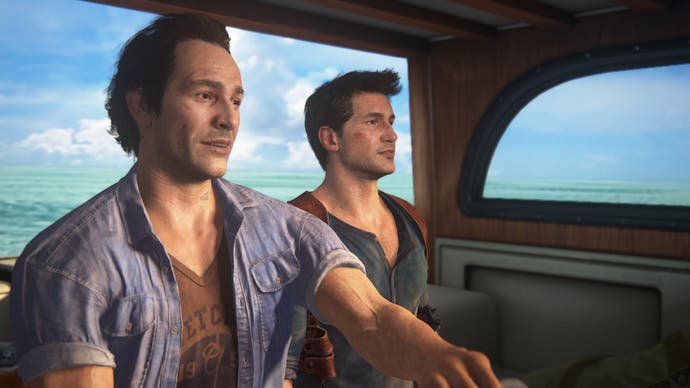
It's another globe-trotting race, then, against another ruthless rival: Rafe Adler, a rich American adventurer with a private South African army. But you can already see how much more cleanly the plot's been constructed. For once, Drake has a clear motivation to stay in the game after things inevitably go south, and a clearly defined conflict - brotherly love versus a promise to his wife, his thirst for adventure versus his nagging good sense. Uncharted 3 unwisely drove the character towards brooding obsession, but A Thief's End pulls back from that - and from a general tendency in the series towards overcooked, last-act lunges into the absurd. It would be a spoiler to reveal where things wind up, but let's just say that Straley and Druckmann are more interested in morality than mysticism.
In fact - just as with The Last of Us - Uncharted 4 impresses most with its restraint. It has set-pieces and scenery that will leave your mouth agape, but underplays its drama, keeping it on a grounded and human scale. Druckmann and his writing team even manage to advance Nate and Elena's on-again, off-again romance - always one of the more touching love stories in games - into a convincing take on the troubles of keeping a marriage off the rocks. It's very mature and confident storytelling, assisted by profoundly impressive performance capture and facial animation that allows the actors the luxury of leaving some things unsaid.
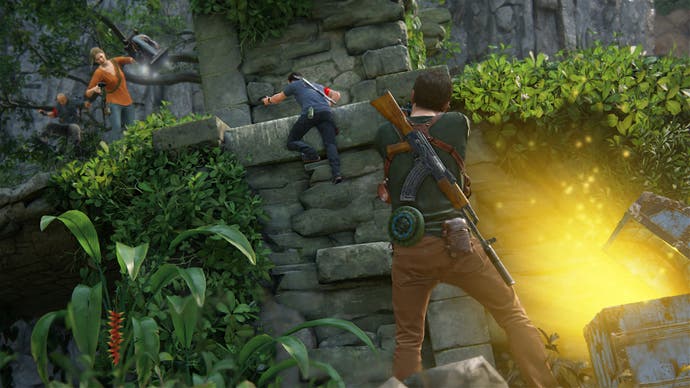
You expect cutting-edge technology from Naughty Dog, and in the studio's first full-blown PlayStation 4 release, you certainly get it. A Thief's End is an impossibly good-looking game, with lavish rendering and art budgets spent on every location from windswept cliffs to domestic interiors. This is premium game-making that takes Naughty Dog's heavily cinematic aesthetic to the next level. Once again, the camera obeys your whim and yet is somehow always drawn to the most suggestive or alluring angle, the most breathtaking vista. Beauty is everything in this studio's games, an ethos best expressed in the gorgeous, hazy lighting that would make any cinematographer weep as it edges every surface in ochre, azure or gold.
The charge laid against the Uncharted games is that all they have is surface. In terms of gameplay, that remains a fair complaint. Uncharted 4 is as uncomplicated as it is smoothly linear and easy to enjoy, combining serviceable cover-shooter combat with fiddle-free climbing and exploration, and puzzles that are more about feeling clever, as you decode their clues and operate their clacking machinery, than actually using your brain. It is the last word in unchallenging, mass-market gaming.
That said, Naughty Dog has gone to some lengths let the game breathe a little this time. The developers clearly want to avoid the suffocating hand of scripting that marred Uncharted 3 in particular - leading to those moments when the game and its movie ambitions didn't seem to be moving in step - and to even out the lumpen pacing of the action that bogged down the latter stretches of the first two games. They're successful.

Many areas have multiple routes through them now; some of the carefully demarcated climbing paths lead nowhere, and you actually need to study the rock and think about where where to head next. (One of the game's most satisfying touches is the way you can use fine stick movements to guide Drake's reaching arm to precisely the handhold you want.) It's not much, but it does feel a little more like an adventure, a little less like a fairground ride. One of Uncharted 4's best moments is an open jeep ride through rugged Madagascan scenery which leaves you at some liberty to ramble, hopping out of the car to explore points of interest, enjoying the off-roading and playing with your 4x4's exciting winch attachment. (Shut up, it is exciting.) You could call it faux open-world gameplay - or, arguably, open-world gameplay without the bland filler - and it's very enjoyable stuff. As well as the usual well-hidden treasures, there are additional journal entries and conversation options for completists to hunt out.
The biggest changes come to the combat. Many enemy encounters now take place in large open areas filled with complex architecture that allows for stealth. Drake is able to thin out the ranks of goons by hiding in long grass, sneaking and using his climbing skills to outflank and surprise his enemies with silent takedowns - or even leave them unmolested. It's no Metal Gear Solid, but with its freedom of approach, stealth is a good deal more satisfying than the blunt shootouts. The guns are fun but the enemy designs are as dim-witted and uninteresting as ever, and once stealth is broken, encounters lean aggressively towards tactics-free attrition, piling on ever more heavily armed and armoured mercs. There's a lot of this as the game's climax approaches, though it's been pruned further than the interminable stretches of blasting that the earlier games suffered from.
And that end? As the conclusion to a series known for its exuberantly over-the-top action it is, perhaps, a little anticlimactic. But I prefer that to the hysterical over-reaching of Uncharted 3, or Uncharted 2's sudden swerve into credibility-defying, moony nonsense. And you have to admire Naughty Dog for leaving themselves with no way back. Sony may well find a way to make more games under the Uncharted name in future - I'm sure it will - but Naughty Dog is definitely done, and it has gone quite far out of its way to make sure it would be very difficult for Drake to return, too. As much as the studio must be eager to move on to other things, it can't be easy to close the door as firmly as this.
As accomplished as Uncharted 4: A Thief's End is - as heroically as it bests its predecessors, as gracefully as it sidesteps their pitfalls - it's not possible for it to have the seismic impact and far-reaching influence that Uncharted 2 did. Nor does it redefine the storytelling scope of the blockbuster action game like The Last of Us. It still does something remarkable for a major franchise video game, though: it doesn't overdo its exit. It doesn't immolate itself in a blaze of glory, it tells a story about people and finds peace in its resolution. It just ends. Fin.
For more on Naughty Dog's latest, check out our Uncharted 4 guide and walkthrough.
